
Projects
Projekte
-

Space of Imagination
Matsudo International Science Art Festival 2018
In collaboration with the Japanese artist Yoko Shimizu, Ars Electronica Japan first co-curated the Matsudo City International Science Art Festival in 2018. Strongly integrated into local structures, the festival format took its starting point from the existing infrastructures of the university city northeast of Tokyo. A broad creative scene and the scientific and technical institutions located in…
-
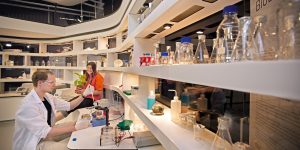
SPARKS Hackathon: DIY Genome Analysis
How well do gene analysis technologies work at home? And what do they tell us about ourselves?
-
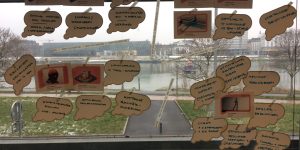
WKOÖ Innovation Lab: Digital Innovation in Construction
Technology, digitization and industry are changing the world around us. Developers, planners and executors in architecture, construction, engineering and manufacturing — they all contribute to these changes and turn visions into reality. But the possibilities offered by digital and new technologies also raise questions: How should companies position themselves? How do we want to work…
-

Losgröße 1 – Technisches Museum Wien
In November 2018 Technisches Museum Wien opened the exhibition “Arbeit & Produktion” as part of the series “weiter_gedacht_”. The series of events put current research and development at the centre of the 2018 programme and focused on how central features of society are affected by technologically driven change.
-
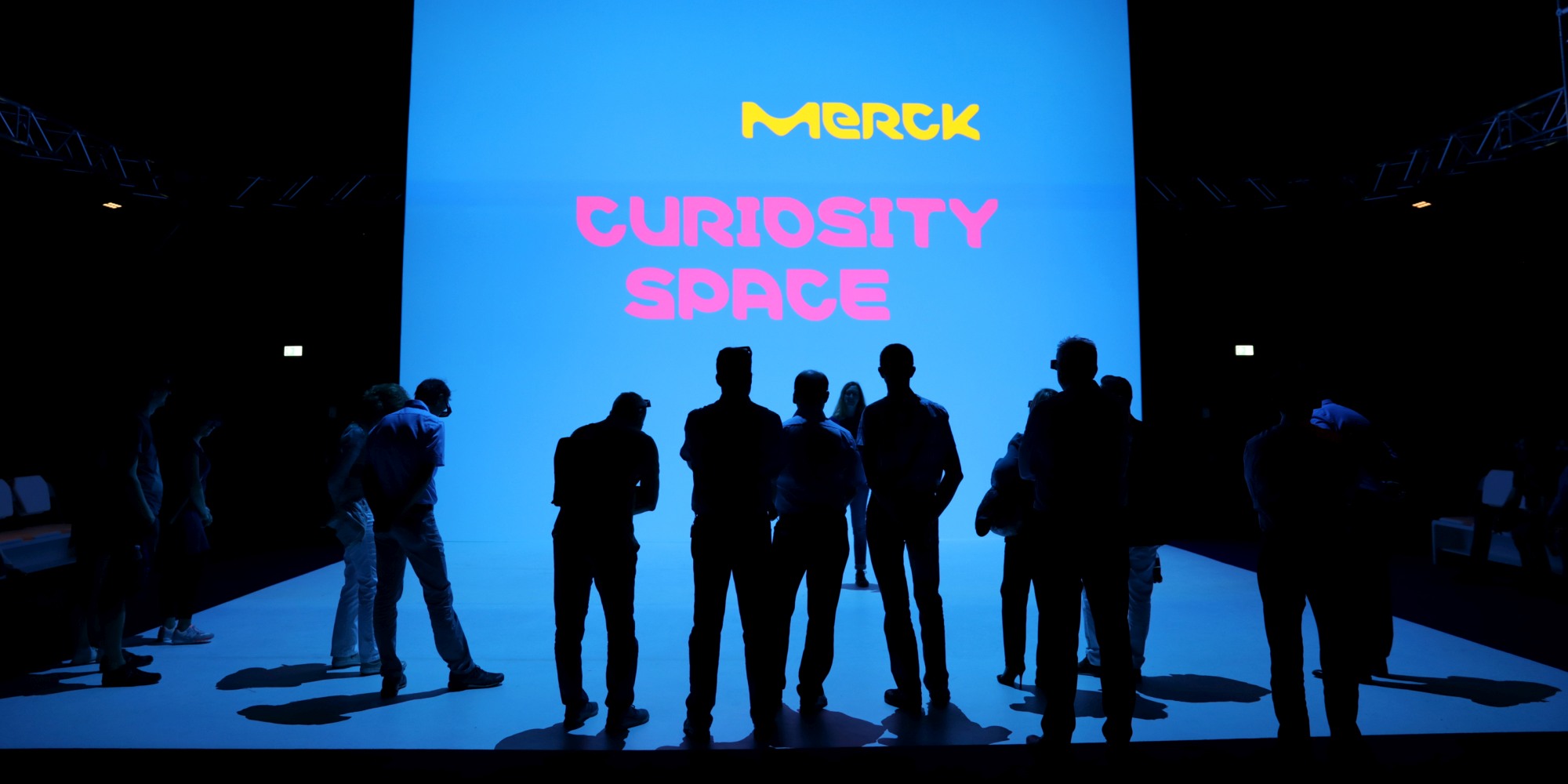
Merck 350 Curiosity Space
In 2018, Merck (known as Merck KGaA, Darmstadt, Germany in the US and Canada) celebrated its 350th anniversary under the motto “Imagine. Always curious – also in the next 350 years”. For the program around Merck 350, the Ars Electronica Futurelab has developed the Curiosity Space: a walk-in 3D projection and experience space based on…
-
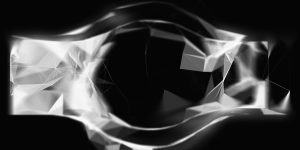
Lazarus
For the musical’s adaption of Lazarus for the Musiktheater Linz (English with German dialogue), the Landestheater Linz engaged in a special cooperation with the Ars Electronica Futurelab, in order to utilize media art to stage the material in a special contemporary appearance.
-

Swarm Compass
Japanese telecommunications giant NTT and the Ars Electronica Futurelab have been working together since 2017 on how to use drones—aka unmanned aerial vehicles—as a means of communication. The Sky Compass project laid the groundwork in 2017; now, Swarm Compass takes this initiative to the next level.
-
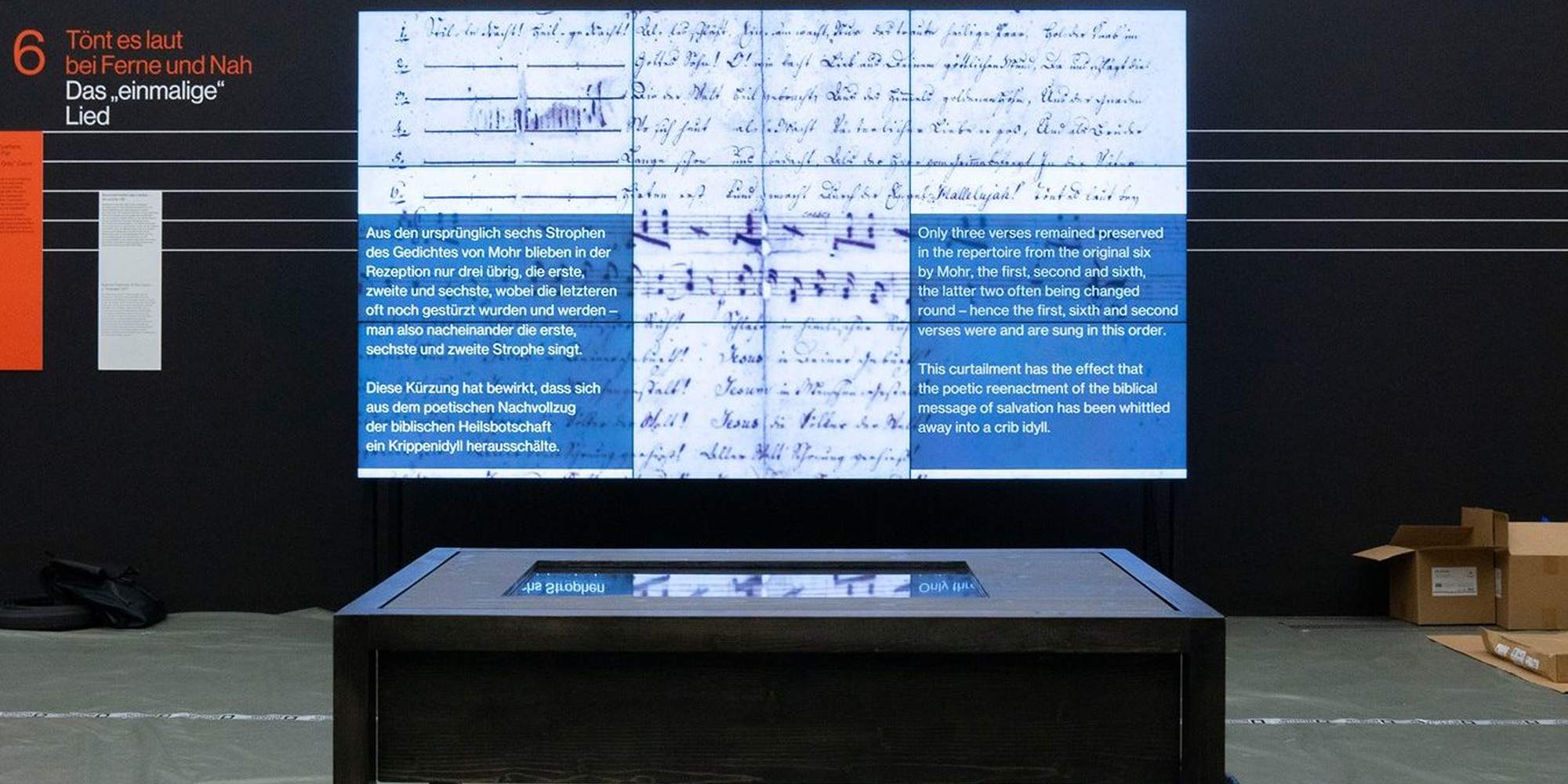
Stille Nacht 200
On the 200th anniversary of the Christmas classic Stille Nacht, heilige Nacht the Salzburg Museum, as one of seven parts of the Salzburg Provincial Exhibition, presented various facets of the song in the curated tour Silent Night 200 – History. Message. Present.
-
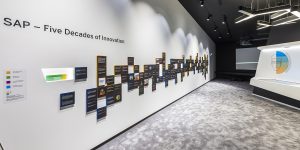
Augmented Humanity @SAP Pavilion
In 2012, Europe’s largest software manufacturer SAP commissioned the Ars Electronica Futurelab with a representative work on the 40th anniversary of the former start-up. The exhibition format “40 – years of Future” was specially developed for the planned company museum in order to communicate the company’s history and key inventions to the general public.
-
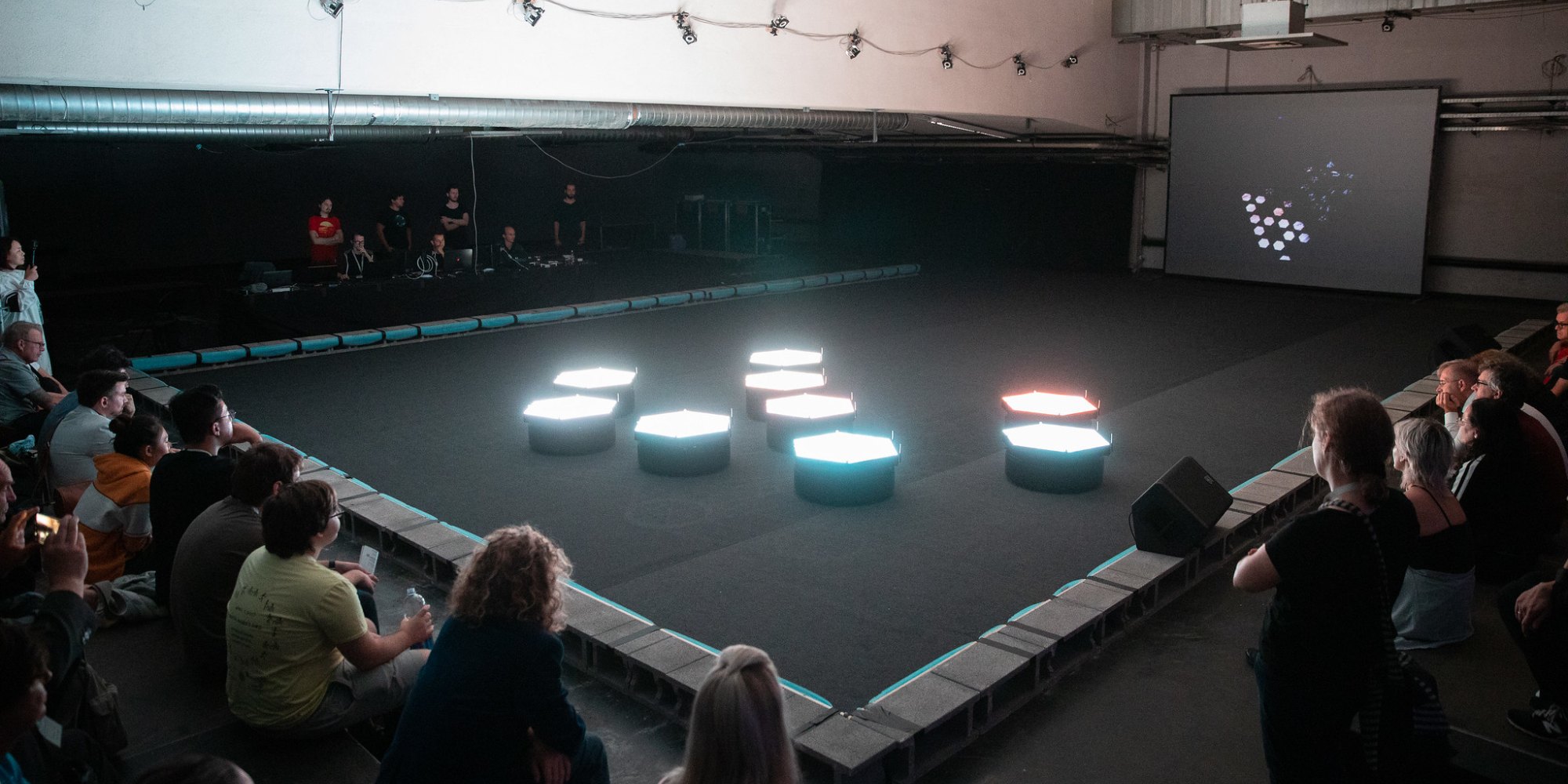
Swarm Arena
Swarm Arena is the latest outcome of joint research efforts by the Ars Electronica Futurelab and Japanese telecommunications giant NTT. The collaboration started in 2017 with the aim to work on using unmanned aerial or ground vehicles (UAVs and UGVs) as a means of communication.
-
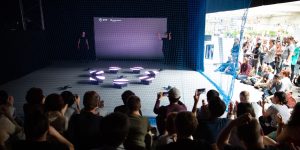
Open Futurelab 2018
Nach einer längeren Phase der Integration von Beiträgen aus dem Ars Electronica Futurelab an unterschiedlichen Schauplätzen des Festivals, sollte mit der Initiative Open Futurelab 2018 in der POSTCITY erstmals eine zentrale Schnittstelle für das kreative internationale Netzwerk des Labors entstehen.
-
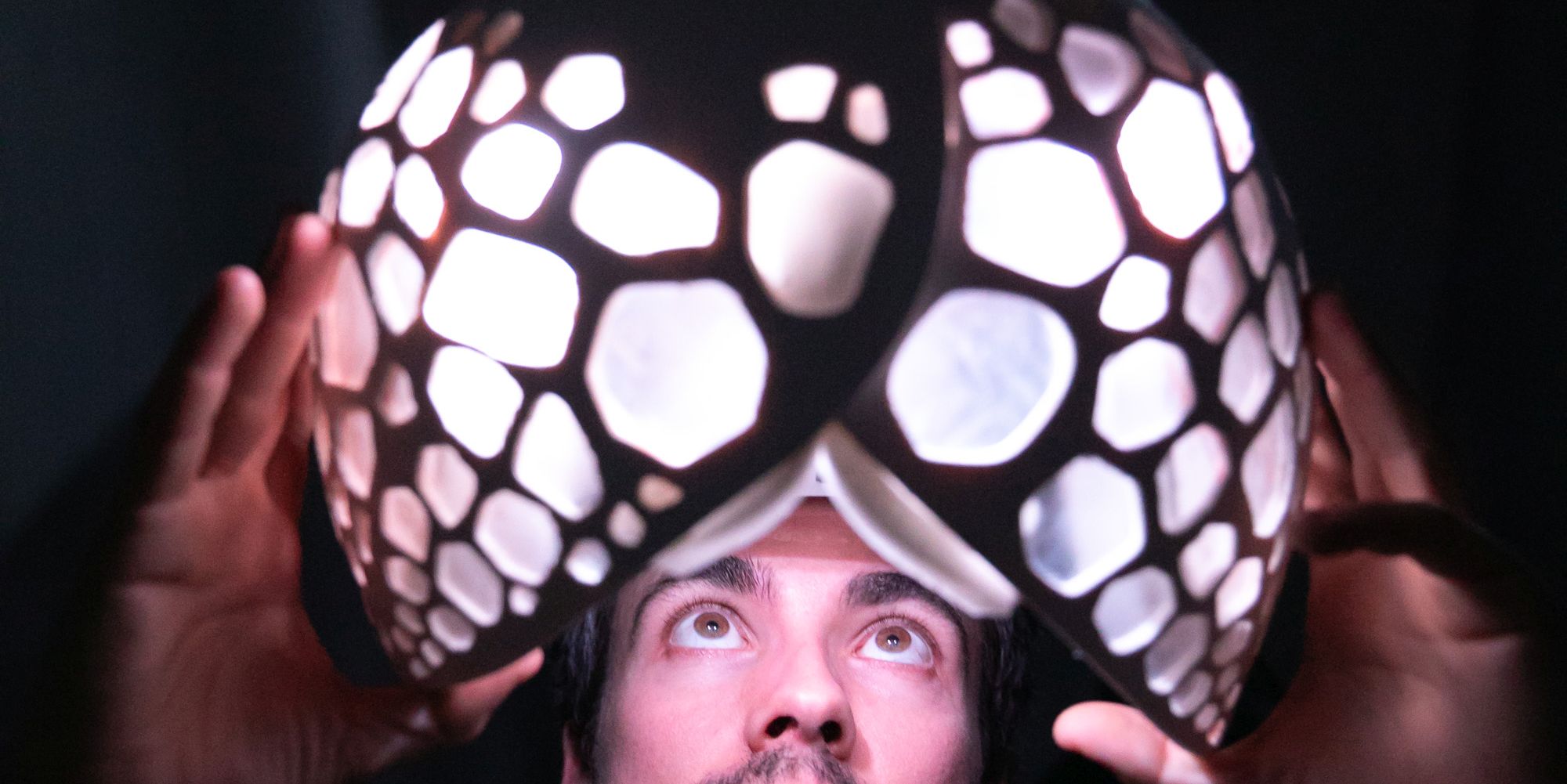
Media Lab Helsinki
Ars Electronica Futurelab Academy
Die Ars Electronica Futurelab Academy wurde als Teil der Futurelab Education Initiative gegründet, um internationale Partneruniversitäten zu transdisziplinärer Praxis zu ermutigen. Über die Grenzen unterschiedlicher Fachbereiche und Ausdrucksformen hinweg, erarbeiten die Teilnehmenden der Academy Projekte an der Schnittstelle von wissenschaftlicher Forschung, technologischen Entwicklungen und künstlerischem Ausdruck.